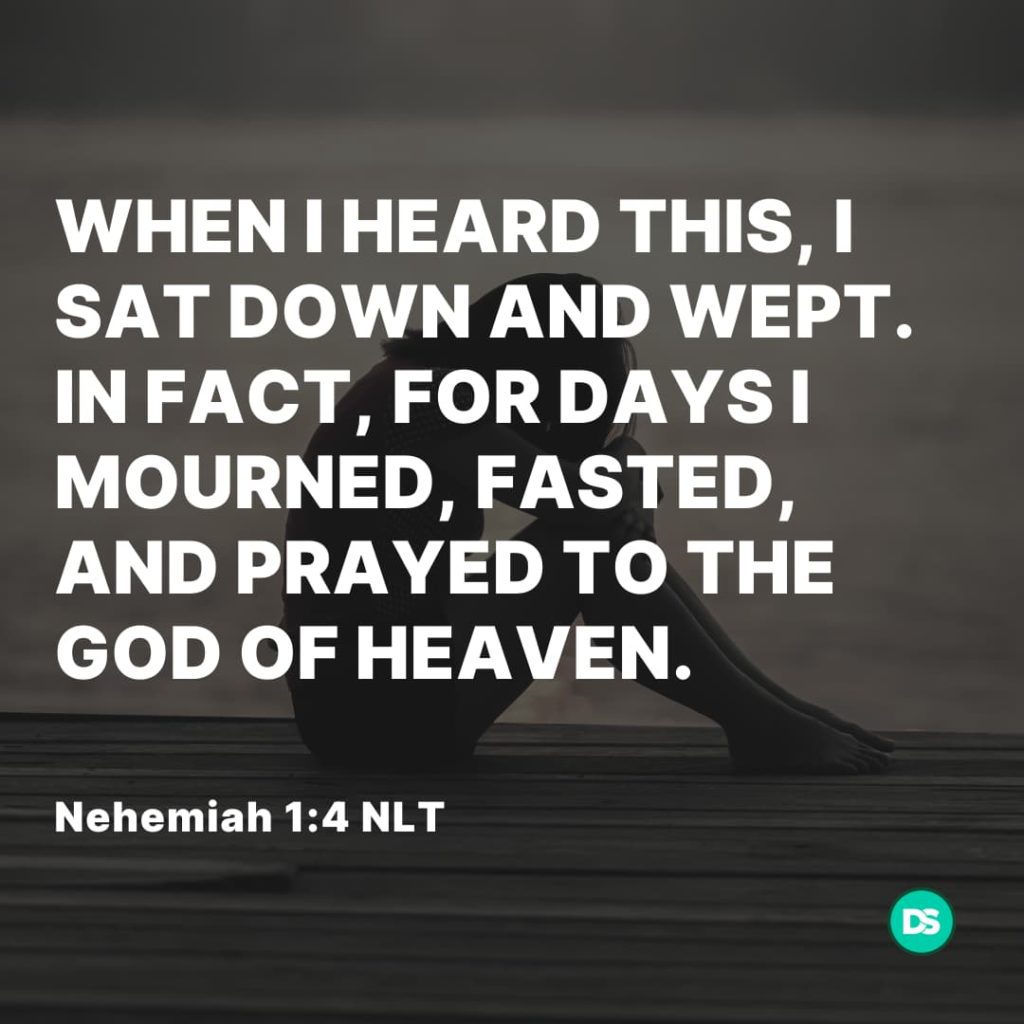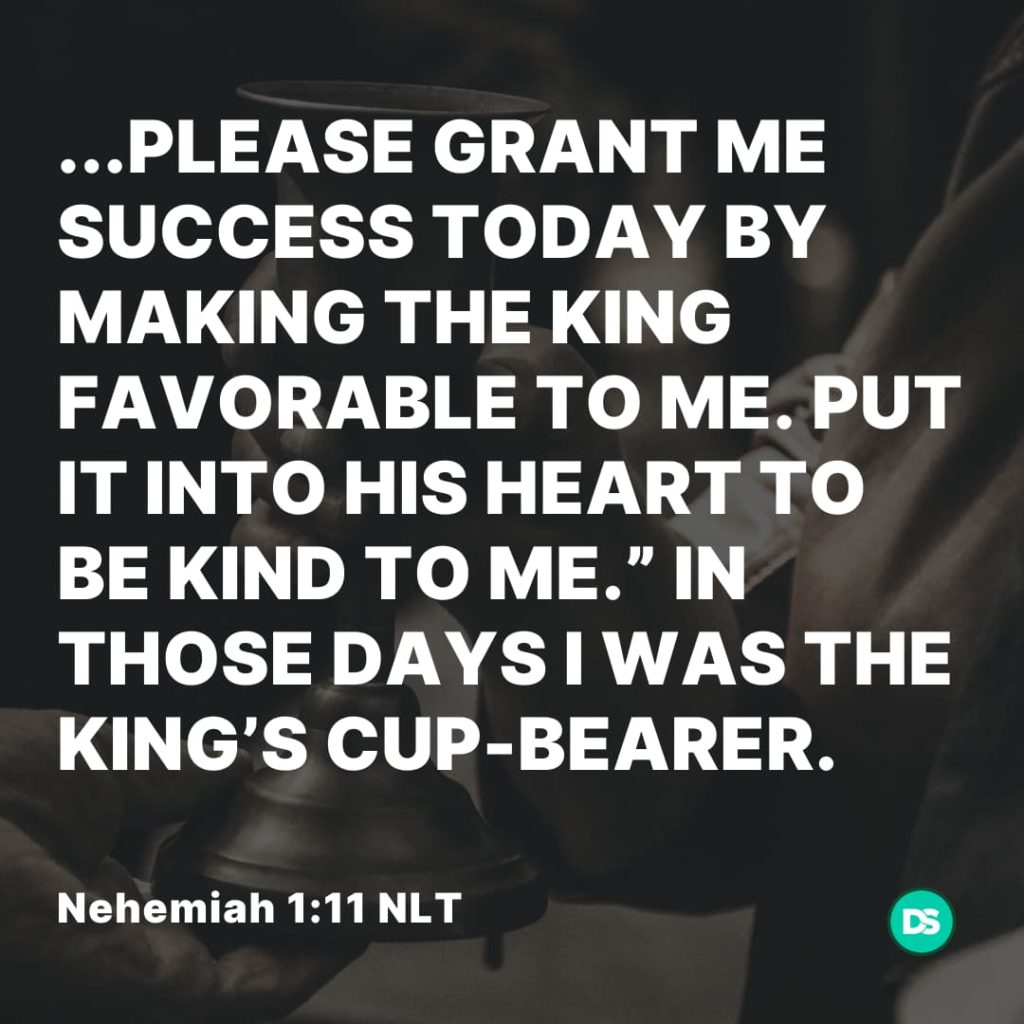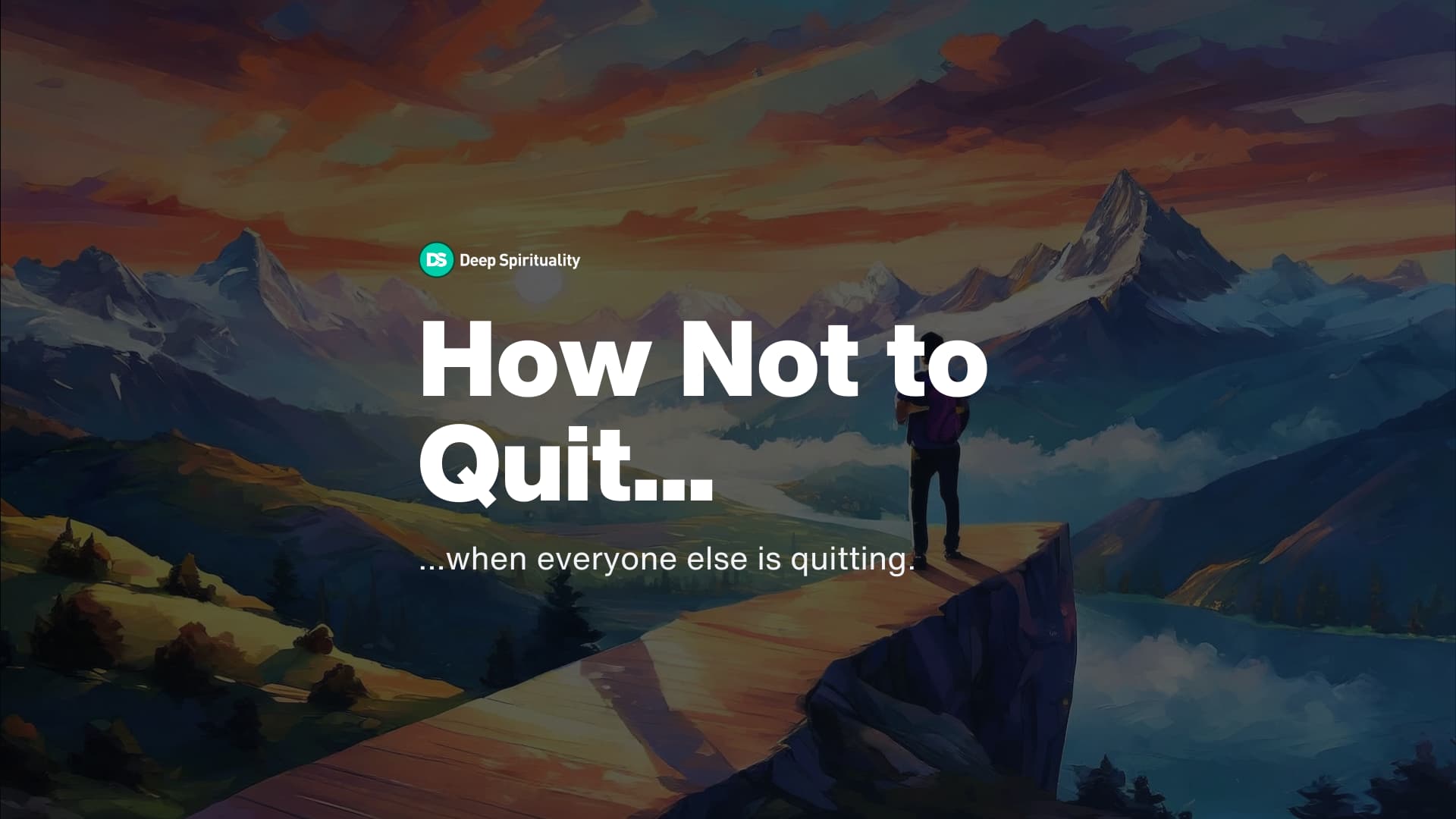Table of Contents
Contents
When I first heard the song “Feel the Need” by Eryn Allen Kane a few years ago, I fell in love with it.
Not only will you always get me with a soulful song—you could write a song about soup and I would be sold if it had a horn section and a choir in the background—but I was especially moved by the bridge:
This little light is yours
“Feel the Need” by Eryn Allen Kane
But not yours to keep
It’s just a loan
You gotta spread it around
Especially to those who tried to break you down
Just show them the power of love
And you’ll see the fear leave their eyes
You’re a gift to this world, it cannot be denied
… Don’t you feel the need for love?
This song makes me think about the need in the world for leaders who use their talents, passions, dreams, and even weaknesses to love others.
These are everyday people who feel the need in the world for love and decide to do something about it.
But whenever I think about this need for leaders, my immediate follow-up thought is, “Yeah, but that’s not me.” I’m more likely to think about all the ways I am inadequate and incapable than about what I can do. Even when I have dreams or ideas, I get so afraid of messing up that I don’t end up doing anything.
But God is not one to let us live small lives. He puts things on our hearts that may scare or overwhelm us, because he wants us to live out a purpose bigger than ourselves, no matter how inadequate we may feel. So who was Nehemiah in the Bible?
I, Nehemiah, am the son of Hacaliah. These are my words. They tell my story. During the winter month of Chislev in the 20th year of Artaxerxes I’s reign, I was in the fortress of Susa [2] when one of my brothers, Hanani, came from Judah along with some other men. I asked them about those Jews who had escaped—who had survived the exile— and about our city, Jerusalem.
Nehemiah 1:1-2 Voice
Nehemiah lived during a time when the Israelites were in exile from their homeland and lived under the rule of other nations. Many of the Israelites had been uprooted from their homes and taken to other lands. Since Nehemiah was the cupbearer to the king, he didn’t live in Israel during this time, but he took an interest in and learned from the people who did live there about the condition of Jerusalem.
Sign up for our devotional newsletter
Subscribe to My Morning Mindset, a 3-day-a-week newsletter with devotionals designed to help you experience a personal relationship with God.
Most likely, Nehemiah didn’t enter this conversation thinking he would eventually lead a nation in rebuilding a city that had been destroyed for years. But as he took an interest in the needs of others, God put it on his heart to do the impossible, no matter how qualified or adequate he may have felt. Let’s dive deeper into the book of Nehemiah to learn three key things from him and his relationship with God about how to be a true leader.
For some more context to the book of Nehemiah, check out this video:
Discover the dream
Before we take any action, we learn from Nehemiah that we need to start by getting a personal dream from God.
When we do the work in our hearts to catch the vision, then no matter how many conflicts or setbacks we face we will be able to keep pushing forward. This starts by letting ourselves feel for the needs around us.
Let emotions lead you to purpose
They said to me, “Things are not going well for those who returned to the province of Judah. They are in great trouble and disgrace. The wall of Jerusalem has been torn down, and the gates have been destroyed by fire.” [4] When I heard this, I sat down and wept. In fact, for days I mourned, fasted, and prayed to the God of heaven.
Nehemiah 1:3-4 NLT
After he was told about how his people were doing, Nehemiah felt sadness and pain for them. Jerusalem was a very special city to Nehemiah’s people.
Though he wasn’t directly affected by their suffering—he was most likely living comfortably working for the king—he felt for what they were going through. He then took these feelings to God in heartfelt prayer for several days.

Pause and reflect
- When was the last time you felt pain for someone else’s situation that had nothing to do with you?
- When you feel sadness for someone else, how do you respond? Do you stay stuck in your emotions, ignore them, or take these emotions to God in prayer?
Nehemiah took his emotions to God in prayer. Prayer helped him process his emotions and find a personal vision from God that compelled him to lead despite his fear. We can learn from him how to do the same.
The vision to lead starts with prayer
Then I said, “O LORD, God of heaven, the great and awesome God who keeps his covenant of unfailing love with those who love him and obey his commands, [6] listen to my prayer! Look down and see me praying night and day for your people Israel. I confess that we have sinned against you. Yes, even my own family and I have sinned!…
[8] “Please remember what you told your servant Moses: ‘If you are unfaithful to me, I will scatter you among the nations. [9] But if you return to me and obey my commands and live by them, then even if you are exiled to the ends of the earth, I will bring you back to the place I have chosen for my name to be honored.’.. [11] O Lord, please hear my prayer! Listen to the prayers of those of us who delight in honoring you. Please grant me success today by making the king favorable to me. Put it into his heart to be kind to me.” In those days I was the king’s cup-bearer. Nehemiah 1:5-6, 8-9, 11 NLT
So what can we learn from Nehemiah about how to have a prayer that compels us to act?
- Acknowledge who God is (Nehemiah 1:5) – Nehemiah had an understanding of who God was. He acknowledged and appreciated God’s love and forgiveness. This understanding of God’s love is what allowed him to be completely honest in the rest of the prayer, because he knew God cared about him.
- Confess sin and take responsibility (Nehemiah 1:6) -Nehemiah took full responsibility for his own sin and the sin of his people. He didn’t blame God or circumstances; he acknowledged the ways he and his people had sinned and gotten themselves in this position. He recognized that his guilt affected his relationship with God, so he took ownership before taking any action.
- Remind God (and yourself) of his promises (Nehemiah 1:8-9) – After being humble and honest about his guilt, Nehemiah then turned to God’s Word. He remembered what God had said, and prayed through that to remind both himself and God of what God had promised—that God would forgive his people and be faithful.
- Ask for God’s power and help (Nehemiah 1:11) – After thoroughly dealing with his heart in prayer, Nehemiah asked God for help. He had on his heart what he wanted to accomplish but saw he couldn’t do it on his own.
Nehemiah needed to have this prayer before doing anything else.
He would later face opposition, fear, doubt, and conflict, but it was this prayer and many prayers like it that enabled him to stand strong and lead with action. He firmly believed that God was with him no matter what he faced.

Pause and reflect
- Do your prayers look like Nehemiah’s prayer? Why or why not?
- Do you do one of these steps while neglecting others? Which can you focus on more?
Decide to act
Once we deal with our hearts and get our personal vision from God, it’s time to act. But this doesn’t always look the way we think it does. We may be surprised by what actions it takes to become the leader who makes dreams happen.
Decide to be vulnerable
Early the following spring, in the month of Nisan, during the twentieth year of King Artaxerxes’ reign, I was serving the king his wine. I had never before appeared sad in his presence. [2] So the king asked me, “Why are you looking so sad? You don’t look sick to me. You must be deeply troubled.”
Nehemiah 2:1-2a NLT
Following his prayer, Nehemiah decided to act by asking the king for help. But this action was not an aggressive demand or a forceful challenge. He simply decided to be vulnerable with the king.
I think that because Nehemiah was willing to show emotion, the king was more inclined to listen and help. Since he had never shown any sadness around the king before, he was taking a risk, not knowing how the king would respond. Nehemiah believed the dream God gave him was worth potentially looking vulnerable.

I can have an opposite view of vulnerability. I think that if I show emotion or express need, then I’ll look weak, and no one will take me seriously. I’m already insecure about my ability to lead, and I don’t want to give anyone a reason to confirm my fears, so I hold back and act like I have it all together.
But Nehemiah cared more about the dream God put on his heart than about how he looked to others. He kept going back to prayer, and that made him stick it out even though he was afraid.
Decide to act despite your fear
Then I was terrified, [3] but I replied, “Long live the king! How can I not be sad? For the city where my ancestors are buried is in ruins, and the gates have been destroyed by fire.” [4] The king asked, “Well, how can I help you?” With a prayer to the God of heaven,
[5] I replied, “If it please the king, and if you are pleased with me, your servant, send me to Judah to rebuild the city where my ancestors are buried.” [6] The king, with the queen sitting beside him, asked, “How long will you be gone? When will you return?” After I told him how long I would be gone, the king agreed to my request. Nehemiah 2:2b-6 NLT
Nehemiah’s prayer and conviction that he was chosen by God (see Nehemiah 2:20) didn’t take away his fear. But they did help him continue to speak up and fight despite the fear he clearly felt. He didn’t stop at one prayer, either. He kept praying to God even in the middle of the conversation.
It was this decision to pray to push past his fear that was impactful. He influenced the king to take action when the king might not have otherwise done so. Nehemiah inspired the king to ask, “What do you want me to do?”
Pause and reflect
- What are some areas in which fear has been stopping you from taking action?
- How can you use vulnerability to lead others?
Find your team
Alright. So you’ve prayed and gotten vision from God, and you’ve started taking action. But how do you actually make the dream happen? After Nehemiah spoke to the king and saw what needed to be done, he got others to catch the vision too.
The city officials did not know I had been out there or what I was doing, for I had not yet said anything to anyone about my plans. I had not yet spoken to the Jewish leaders—the priests, the nobles, the officials, or anyone else in the administration.
[17] But now I said to them, “You know very well what trouble we are in. Jerusalem lies in ruins, and its gates have been destroyed by fire. Let us rebuild the wall of Jerusalem and end this disgrace!” [18] Then I told them about how the gracious hand of God had been on me, and about my conversation with the king. They replied at once, “Yes, let’s rebuild the wall!” So they began the good work. Nehemiah 2:16-18 NLT
Because Nehemiah had done the spiritual and emotional work leading up to this, he inspired the other leaders to join him. Many times when we feel called to lead, it’s easy to either try to force other people to do what we want, or think we could never inspire anyone so we should just do everything ourselves.

But Nehemiah saw what a great task was before him, so he knew he couldn’t do it alone. And since he was convinced this vision had come from God, he wanted them to have the same faith and vision he had. I believe it was this vision that led the people to keep fighting and working even when they faced opposition and fatigue.
I won’t include it here, but if you read Nehemiah 3, you’ll see a list of all the people that worked on rebuilding the wall of Jerusalem together. Everyone had a role, and no one thought they were too good or not good enough for their role. The vision inspired incredible teamwork.
Let’s briefly look at two things that could stop us from working together as a team.
Are you competitive or cooperative?
Sanballat was very angry when he learned that we were rebuilding the wall. He flew into a rage and mocked the Jews, [2] saying in front of his friends and the Samarian army officers, “What does this bunch of poor, feeble Jews think they’re doing? Do they think they can build the wall in a single day by just offering a few sacrifices? Do they actually think they can make something of stones from a rubbish heap—and charred ones at that?”
[3] Tobiah the Ammonite, who was standing beside him, remarked, “That stone wall would collapse if even a fox walked along the top of it!” [4] Then I prayed, “Hear us, our God, for we are being mocked. May their scoffing fall back on their own heads, and may they themselves become captives in a foreign land! [5] Do not ignore their guilt. Do not blot out their sins, for they have provoked you to anger here in front of the builders.” [6] At last the wall was completed to half its height around the entire city, for the people had worked with enthusiasm. Nehemiah 4:1-6 NLT
When Nehemiah started rebuilding the wall, Sanballat was one of the first people to oppose him. He was an enemy of the Jews. He questioned Nehemiah, mocked him, and did everything he could to get Nehemiah and the people to give up. What we can learn from this passage is Sanballat and Nehemiah were both leaders.
Both influenced other people. But while Nehemiah had a personal vision and confidence that God was with him and an enthusiastic team that backed him up, Sanballat did not seem to have any vision of his own, and was angry and critical of Nehemiah.

In today’s terms, we would call Sanballat a bully—intimidating others, criticizing them, and putting them down. Nehemiah’s vision inspired people around him, making them want to work toward the dream as well. But Sanballat influenced those around him to be competitive and try to tear down the people who dreamed.
When I get critical and competitive, it usually means I’ve lost sight of the purpose God has for me. Seeing others succeed or do well just fuels my insecurity and fear of inadequacy. It stops me from seeing that I could actually learn from and be a team with them. But when I believe God chose me despite my fear and insecurity, seeing others succeed excites me and makes me want to work together with them.
Fear and fatigue are the enemies of working together
When we are trying to lead and work toward a vision, we will inevitably face conflict, opposition, or fatigue. The way our team handles these hardships is key to being able to push forward.
Then the people of Judah began to complain, “The workers are getting tired, and there is so much rubble to be moved. We will never be able to build the wall by ourselves.” [12] The Jews who lived near the enemy came and told us again and again, “They will come from all directions and attack us!” So I placed armed guards behind the lowest parts of the wall in the exposed areas. I stationed the people to stand guard by families, armed with swords, spears, and bows.
Nehemiah 4:10,12-13 NLT
In this passage, we learn about two things that can threaten us to stop working together toward the dream: fatigue (“the workers are getting tired”) and fear (“they will come from all directions and attack us!”).
Nehemiah recognized that they were only as strong as their weakest link. Rather than just make the strong parts stronger, he made sure that they worked together to find the exposed areas and make those stronger, too. As a team, we should also look for our weak and exposed areas and help each other strengthen them.
Then as I looked over the situation, I called together the nobles and the rest of the people and said to them, “Don’t be afraid of the enemy! Remember the Lord, who is great and glorious, and fight for your brothers, your sons, your daughters, your wives, and your homes!”
Nehemiah 4:14 NLT
Nehemiah recognized that the team needed two things in order to keep fighting:
- Remember God.
- Fight for your family and friends.
When I get tired and stop believing that God is on my side and fighting for me, I turn all my attention to myself. I become self-protective, self-reliant, and selfishly ambitious. I want to protect myself from failure, so I fight to get my own way and find success alone.
I don’t believe anyone is going to help or relieve me, so I try to do everything myself. I completely lose sight of the team because all my focus is on me.
But when I remember God—that he’s fighting with me, that he’s the one who gave me the vision in the first place, and that I’m not alone—I realize that I don’t need to rely on myself. I can keep fighting even when I’m tired and afraid!
As leaders, we need to remind ourselves and the people we are trying to lead that we are not alone. It’s the team that makes the dream happen, and it’s the team that helps us push through even when things are hard. This is what it means to fight for our family and friends.
Pause and reflect
- How have fatigue and fear been affecting you lately?
- What is your response to fatigue and fear? Do you turn back to God and see your purpose in fighting for the people you love? Or do you become selfish and unbelieving?
- What might you be able to accomplish together with God and a team of friends that you couldn’t accomplish on your own?
Next steps
Nehemiah’s story doesn’t stop here! Read the rest of the book of Nehemiah to learn how he made the dream last, even in the midst of opposition and conflict.
Also, check out these additional resources to learn how to grow as a leader.
Explore more:
Alexis Colvin is a writer and editor for Deep Spirituality, and is passionate about using her creative skills to apply spiritual concepts to music and other forms of pop culture.
Alexis Colvin is a writer and editor for Deep Spirituality, and is passionate about using her creative skills to apply spiritual concepts to music and other forms of pop culture.





